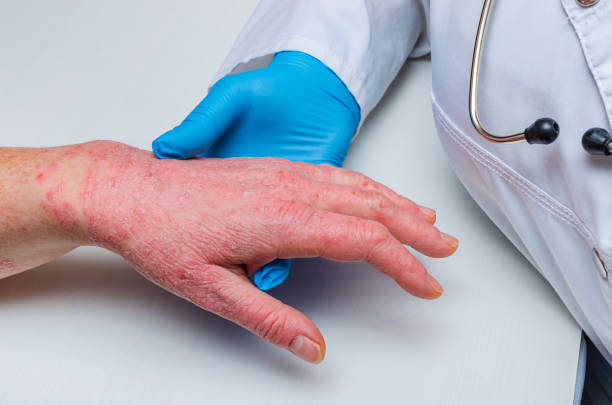Make an Appointment
What is Psoriasis?
Chronic Psoriasis causes skin cells to grow up to ten times faster than normal. As a result, the skin develops into red spots that are rough and coated with white scales. They can grow everywhere, but the scalp, elbows, knees, and lower back are where they most frequently show up. Nobody can contract psoriasis from another individual, as it is not an infectious disease. Members of the same family can experience it occasionally.
Early adulthood is the typical onset of psoriasis. It mostly impacts a few specific regions for most people. Psoriasis may cover a significant portion of the body in severe cases. Over the course of a person’s life, the patches may heal and then reappear. Cara Delevingne’s psoriasis awareness raised a spark on the Internet to know more about the disease. Continue reading this article to know more about it.
Symptoms of Psoriasis
The type of psoriasis you have will determine the symptoms you experience. The following are some of the most typical symptoms of plaque psoriasis, the most prevalent type of the condition:
- Plaques of red skin, often covered with silver-coloured scales. These plaques may be itchy and painful and sometimes crack and bleed. Plaques will expand and combine in extreme situations, covering huge areas.
- Disorders of the fingernails and toenails, such as discolouration and pitting. Additionally, the nails could separate from the nail bed or shatter.
- Scale or crusty patches on the scalp (scalp psoriasis)
Types of Psoriasis
The several types of psoriasis include:
- Pustular psoriasis is characterised by red, scaly skin with small pustules on the palms and soles of the feet.
- Guttate psoriasis typically begins in childhood or early adulthood and develops tiny, red spots on the torso and limbs. Respiratory infections, strep throat, tonsillitis, stress, skin injuries, and taking beta-blockers and antimalarial drugs can all be triggers for this type of psoriasis.
- Inverse psoriasis causes bright red, glossy lesions in skin folds like the armpits, groyne, and beneath the breasts.
- Erythrodermic psoriasis causes a fiery redness of the skin and the discharge of scales in sheets. Severe sunburn, infections, specific drugs, and quitting particular types of psoriasis treatment are its triggers. It should be treated right away because it could cause serious sickness.
What Causes Psoriasis?
The actual cause of psoriasis is unknown, although specialists believe it is a combination of factors. Inflammation results from a problem with the immune system, which prompts too many new skin cells to develop. Every 10 to 30 days, skin cells are typically replaced. Every three to four days, new skin cells appear in psoriasis. Those silver scales are the result of an accumulation of old cells being replaced by new ones.
Although it sometimes skips generations, psoriasis frequently runs in families. A grandfather and their grandchild (early psoriasis), for instance, might be impacted, but not the child’s mother.
The following factors can cause a psoriasis flare-up:
- Surgery, scrapes, or cuts
- Emotional stress
- Strep infections
- Drugs such as blood pressure medications, anti-malarial treatments, lithium and other mood stabilisers, antibiotics, and nonsteroidal anti-inflammatory drugs (NSAIDs)


One Comment
Pingback: Psoriasis: Symptoms and Causes – Sujata Birla Hospital